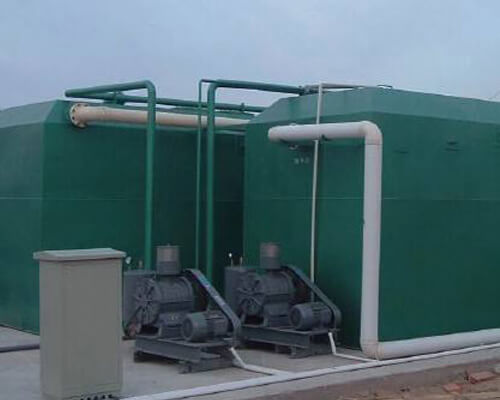4 Benefits of Electrocoagulation for Heavy Metal Wastewater Treatment

There is much debate in academia, as to what elements should be considered “heavy metals”. Some criteria depend on density, some on atomic number, and some on chemical behavior. In the water treatment industry, we tend to concern ourselves with the more common and more toxic variety. Such heavy metals may include mercury, cadmium, lead, chromium, and copper. Arsenic is also considered a heavy metal. Therefore, heavy metal wastewater treatment is an important issue within the USA and globally for domestic and industrial wastewater.
Heavy metals can cause health issues in living organisms. These metals can bioaccumulate in these organisms, meaning they can continously accumulate inside of living things over time. Therefore, while one small dose of mercury or lead may not make you sick. Multiple doses over a period of time of these metals, can build up in your system and cause sickness later on. Long term exposure to cadmium can cause renal dysfunction and lung disease. Lead can cause issues with hemoglobin synthesis, reproductive issues, and damage to the nervous system. Mercury poisoning is also linked to brain damage, tremors, and gingivitis.
There are several methods of treatment currently available for heavy metal reduction and removal. However, one of the most efficient and cost-effective methods in an integrated heavy metal wastewater treatment system is electrocoagulation (EC).
Therefore, we will discuss four benefits of EC for the removal of heavy metals below.
Can Remove Higher Concentrations of Certain Heavy Metals
Ion exchange has been used to remove heavy metals from water and wastewater. While effective, it can only remove low concentrations of contaminants before the resin becomes oversaturated and requires regeneration. This maybe beneficial in some heavy metal wastewater treatment applications. However, for those that have elevated concentrations of heavy metals — typically wastewater from industrial processes — it would be ineffective. EC however, is capable of processing water with higher concentrations quickly and efficiently.
Less Solid Sludge Residue
A common problem with several removal methods, namely chemical coagulation, is the production of high volumes of sludge solids. A fair percentage of the sludge produced in these processes is due to the addition of chemical additives to cause the appropriate reactions. This sludge then needs to be dewatered and either treated further or safely disposed of by a third party.
However, heavy metal wastewater treatment using specialized EC technology does not require chemical additives other than potentially pH adjusting chemicals. Sludge production is also greatly decreased and sludge will pass TCLP protocols for appropriate discharge.
Can Remove Multiple Metals in a Single System Process
Some heavy metal wastewater treatment methods require extra processes to treat for different metals. For instance, one system may use a medium that can remove mercury, cadmium, and lead, but leaves behind chromium and copper that will need to be treated in another way. EC is capable of removing a number of different heavy metals in one single process if the system is optimized appropriately. Reaction times and pH would be optimized based on specific applications.
Low Lifecycle Cost
Ion exchange resins can be costly in some cases, and regeneration materials can be as well. The large volumes of chemical additives required for chemical coagulation can add up over time whatever there initial cost was to start with. One must also consider disposal costs for the toxic waste sludge produced by such methods, Lastly, there can be high operation and startup costs due to the more complex nature of a chemical processes.
Using a specialized EC process, adjustment chemicals for pH may not be used in great quantity and they are relatively inexpensive. The materials for electrodes are accessible and cost efficient. Based on applied power, these electrodes can last for a relatively long time. This advanced electrochemical technology does not require a team of highly qualified operators, and can be automated which increases operational efficiency and reduces lifecycle cost.
Electrocoagulation is a suitable technology to implement for heavy metal wastewater treatment. Genesis Water Technologies, Inc, is a leader in advanced electrochemical technology. GWT has treated water for heavy metals including copper, cadmium, arsenic, chromium 6 and vanadium for several clients utilizing this advanced and innovative treatment solution.
Having trouble with heavy metals in your water or wastewater source? Want to know how specialized EC can help you in your heavy metal waste water treatment application? Contact Genesis Water Technologies, Inc. at 1-877-267-3699 or email us at customersupport@genesiswatertech.com to setup a free initial consultation to discuss your specific municipal or industrial application.

